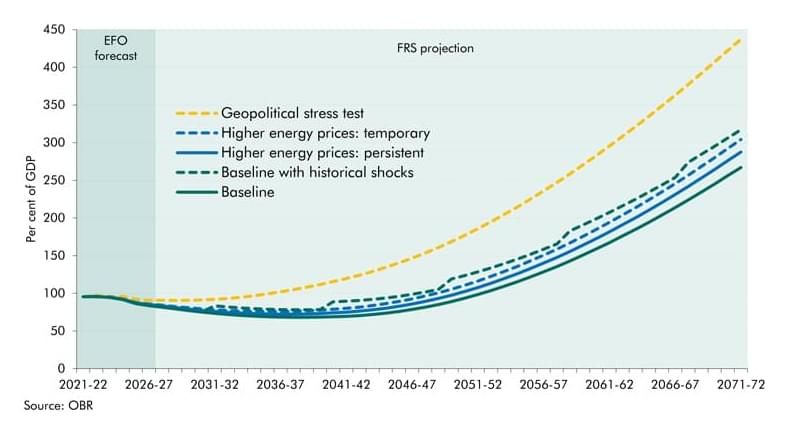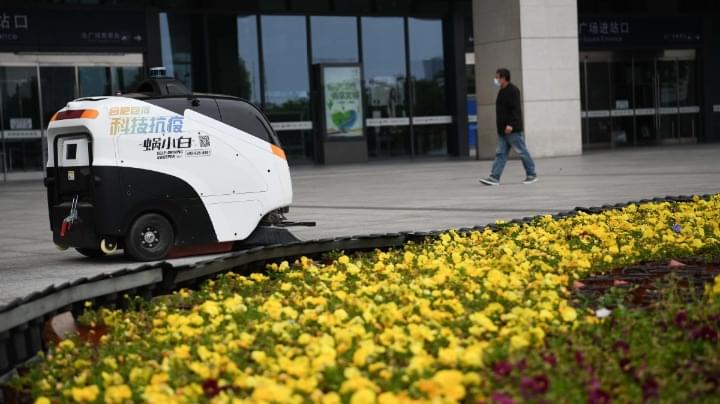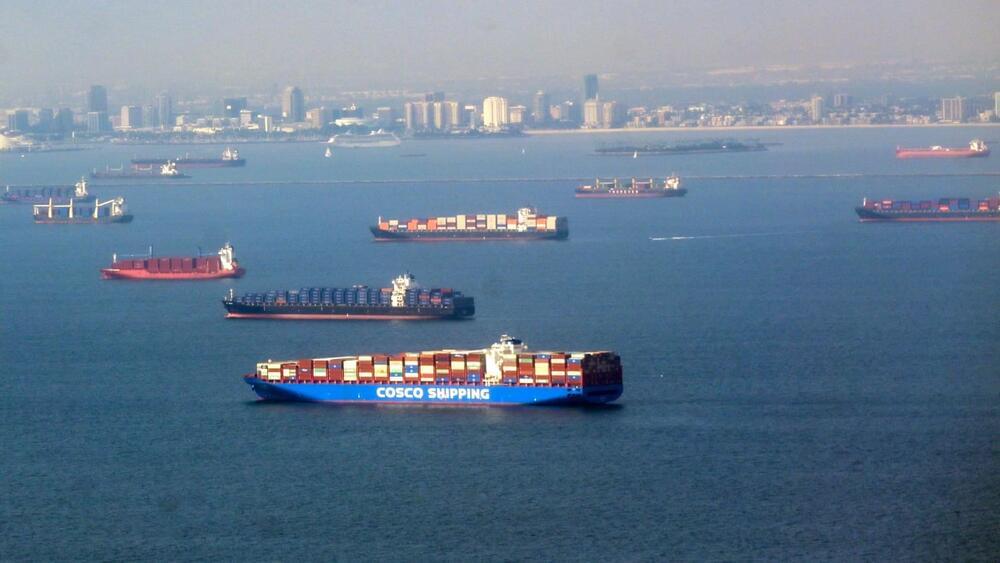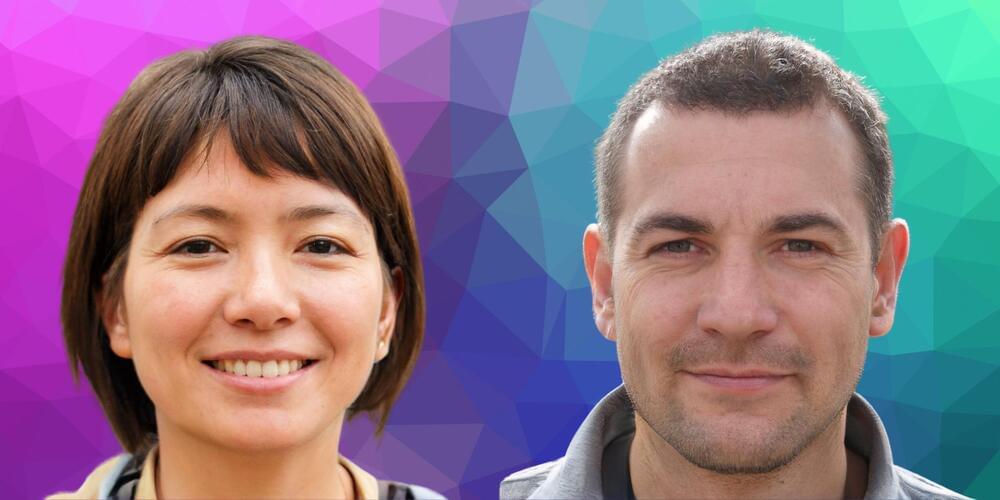A new report warns that UK government debt is likely to see a major increase this century. The 50-year projections are based on a world of increasing risk, alongside demographic, economic, technological, and other trends.


http://2045.com http://gf2045.com.
In February of 2012 the first Global Future 2045 Congress was held in Moscow. There, over 50 world leading scientists from multiple disciplines met to develop a strategy for the future development of humankind. One of the main goals of the Congress was to construct a global network of scientists to further research on the development of cybernetic technology, with the ultimate goal of transferring a human’s individual consciousness to an artificial carrier.
2012–2013. The global economic and social crises are exacerbated. The debates on the global paradigm of future development intensifies.
New transhumanist movements and parties emerge. Russia 2045 transforms into World 2045.
Simultaneously, the 2045.com international social network for open innovation is expanding. Here anyone interested may propose a project, take part in working on it, or fund it, or both. In the network, there are scientists, scholars, researchers, financiers and managers.
2013–2014. New centers working on cybernetic technologies for the development of radical life extension rise. The ‘race for immortality’ starts.
2015–2020. The Avatar is created — A robotic human copy controlled by thought via ‘brain-computer’ interface. It becomes as popular as a car.

For many years, the human genome was seen as a book of life, with passages of remarkable eloquence and economy of expression intermingled with long stretches of nonsense. The readable areas carried the instructions for producing cell proteins; the other regions, which accounted for around 90% of the overall genome, were disregarded as junk DNA
DNA, or deoxyribonucleic acid, is a molecule composed of two long strands of nucleotides that coil around each other to form a double helix. It is the hereditary material in humans and almost all other organisms that carries genetic instructions for development, functioning, growth, and reproduction. Nearly every cell in a person’s body has the same DNA. Most DNA is located in the cell nucleus (where it is called nuclear DNA), but a small amount of DNA can also be found in the mitochondria (where it is called mitochondrial DNA or mtDNA).

China is emerging as a pioneer in artificial intelligence as it makes strides in filing AI patents and experimenting with the latest AI technology to power industrial applications, industry experts said.
Their comments came after a Stanford University report that shows China filed more than half of all the world’s AI patent applications last year and Chinese researchers produced about one-third of AI journal papers and AI citations in 2021.
Wu Hequan, an academician at the Chinese Academy of Engineering, said China has been working to build a solid foundation to support its AI economy and is making significant contributions to AI globally.
ON THE PANEL…
Alys Denby, Deputy Editor, CapX
Mark Johnson, Legal and Policy Officer, Big Brother Watch.
Christopher Snowdon, Head of Lifestyle Economics, IEA
Victoria Hewson, Head of Regulatory Affairs, IEA
Support the IEA on Patreon, where we give you the opportunity to directly help us continue producing stimulating and educational online content, whilst subscribing to exclusive IEA perks, benefits and priority access to our content https://patreon.com/iealondon.
FOLLOW US:
TWITTER — https://twitter.com/iealondon
INSTAGRAM — https://www.instagram.com/ieauk/
FACEBOOK — https://www.facebook.com/ieauk
WEBSITE — https://iea.org.uk/
#IEA #LiveWithLittlewood #Liberty
After announcing at the beginning of the month that the company would be cutting 10 percent of its workforce due to CEO Elon Musks’s “bad feeling” about the economy, Tesla’s job slash is in full swing. According to Insider, many newer employees — including workers who had not even begun their newly-accepted positions just yet — are bearing the brunt of the mass layoffs.
“Damn, talk about a gut punch,” wrote Iain Abshier, a brand-new Tesla recruiter, in a LinkedIn post last week. “Friday afternoon I was included in the Tesla layoffs after just two weeks of work.”
It’s worth noting that these cuts come amid a recall investigation into Tesla’s controversial Autopilot technology, not to mention reports of widespread braking issues and the CEO’s recent lament over supply chain issues — leaving Tesla’s long term viability more ambiguous than it’s been in years, with the brunt of the consequences coming down on the company’s labor force.

Armed with little more than a computer, hackers are increasingly setting their sights on some of the biggest things that humans can build.
Vast container ships and chunky freight planes — essential in today’s global economy — can now be brought to a halt by a new generation of code warriors.
“The reality is that an aeroplane or vessel, like any digital system, can be hacked,” David Emm, a principal security researcher at cyber firm Kaspersky, told CNBC.

Tesla CEO Elon Musk described the electric automaker’s factories in Austin and Berlin as “money furnaces” that were losing billions of dollars because supply chain breakdowns were limiting the number of cars they can produce.
In a May 30 interview with a Tesla owners club that was just released this week, Musk said that getting the Berlin and Austin plants functional “are overwhelmingly our concerns. Everything else is a very small thing,” Musk said, but added that “it’s all gonna get fixed real fast.”
It’s not clear how much has changed in the three weeks since the interview, but last week Musk tweeted congratulations to his Berlin team for producing 1,000 cars in a week.
The world’s most-cited researcher in visual question-answering, Anton van den Hengel, is also Amazon’s director of applied science. Learn how his journey to computer vision started with law—and how his work is supporting Amazon’s business through the development and application of state-of-the-art computer vision and scalable machine learning.
#ComputerVision #CVPR2022
Amazon’s director of applied science in Adelaide, Australia, believes the economic value of computer vision has “gone through the roof”.

Imagine if it were possible to produce infinite amounts of the world’s most valuable resource, cheaply and quickly. What dramatic economic transformations and opportunities would result?
This is a reality today. It is called synthetic data.
Synthetic data is not a new idea, but it is now approaching a critical inflection point in terms of real-world impact. It is poised to upend the entire value chain and technology stack for artificial intelligence, with immense economic implications.